WASH in Limonade, Haiti
Empowering Children & Families with the Foundation for Improved Health & Renewed Hope
Bring Health & Hope to Families in Northern Haiti.
Just a short drive from Cap-Haïtien, northern Haiti’s largest city, is the commune of Limonade. Limonade was founded in 1676 and became an official commune in 1864. There are ~45 communities within the Limonade commune, with a population of approximately 69,256 people, living across 50.93 square miles, of which 68% is suburban, 30% is rural, and 2% is urban. The local economy primarily relies upon trade and agricultural production (coffee, cane sugar, yams, corn, peas). The largest town in the commune is also called Limonade.
Limonade is home to King Henri Christophe University, established in 2012 and considered to be Haiti’s most modern university infrastructure.
Within the Limonade commune are three rural communal sections. The communities of Pistère, Déreal and Campeche, where PWW is currently implementing WASH programs, are located in the Roucou communal.
Water access varies across the commune, with access points including a river, public fountains, wells, water catchments, and unprotected springs…all of which are contaminated with e-coli and other pathogens.
CHALLENGES IN LIMONADE:
- Families living in rural and underserved communities suffer from a severe lack of access to safe water and sanitary infrastructure.
- Local schools lack access to safe drinking water and children have no safe place to use the bathroom or wash hands.
- Women and girls have limited knowledge of menstrual hygiene management and lack basic materials and facilities to manage menstruation.
- Water-related illnesses, including typhoid, persistent diarrhea, intestinal parasites and worms, malaria, skin diseases, and vaginal infections are common and widespread, impacting children and adults throughout the region.
PWW’s PROGRESS
(updated June 2023)
WASH Programs.
- Implemented safe water and hygiene education program, reaching 520 families in Pistère, Déreal, Campeche.
- Completed comprehensive WASH solutions at two local schools.
- Constructed a WASH station at Soaring Unlimited’s medical clinic in Pistère. (read blog)
- Launched Community Education Program (CEP). PWW trains and supports local community leaders, Lead Community Agents, to serve as WASH paraprofessionals. LCAs deliver WASH trainings, reinforcing healthy practices among members of their communities in order to advance the ownership, efficacy and sustainability of the WASH programs. To date, the CEP program has reached 500 families and two schools.
Needs Assessment.
PWW has advanced alliances with local government in the north, DINEPA/OREPA (Haiti’s WASH governing agency), as well as additional community-based organizations to better understand the WASH needs and determine the most effective solutions. PWW conducted a comprehensive needs assessment. The goal of a needs assessment is to engage with local leaders, including community members, school officials, health clinics, and governmental agencies, in order to gather information that will help to determine a community’s needs related to water access, water safety, sanitation access and practices, and hygiene behaviors. This provides a good understanding of the landscape, including the WASH needs and the community’s propensity and commitment to adopt a WASH program.
Community Mapping. Using the needs assessment, the community mapping provides specific details to outline WASH needs for the individual communities and helps to establish WASH implementation plans for each community. Community mapping has been conducted for the 3rd Section Roucou.
Menstrual Hygiene Knowledge and Practices Study (KAP) Study.
- February 2023, PWW launched review of MHM program in Limonade, assisted by an intern from University of Albany. (see report)
- March 2023, PWW launched focus groups with 4 key stakeholder groups for MHM program.
- May 2023, PWW conducted a MHM Day celebration, integrating the instruction and creation of reusable pads with girls and women in the area. (see blog)
For every $450 raised
Pure Water for the World will provide a family with:
- An in-home use, BioSand water filtration system, that keeps healthy minerals in the water, while filtering out up to 100% of parasites and other toxicants; > learn more
- Safe water, sanitation and hygiene educational training;
- Follow-up monitoring, to ensure the cycles of waterborne illnesses are broken.
Family Commitment:
- Make a manageable financial investment of ~200 Goudes (approx. $4US);
- Mandatory participation in WASH training programs;
- Participate in the implementation and follow-up, to ensure successful and sustainable use of the tools and practices.
- Work with Community Agents to support long term efficacy.
“My name is Monchère Claudette. I’m from Pistère. I live in my house with six people; three are my children (ages 18, 14 and 8). My children used to have stomachaches and diarrhea. But now that they are drinking the water from the filter, they are healthy! I want to say thank you to PWW. Thank you very much.”
PROJECT GOALS AND OUTCOME:
- Partner with rural Limonade communities by engaging community members, including local government, in the planning and implementation of WASH programs.
- Reduce diarrheal diseases from waterborne pathogens:
- Empower families and children with access to safe drinking water at home, school and in healthcare facilities;
- Establish safe practices, including home hygiene, environmental hygiene, personal hygiene, and menstrual hygiene management, for use in homes, schools, and the greater community.
- Improve school attendance. Enhance effectiveness and impact of schools, and support students with staying in school and achieving an education, by providing:
- access to water source
- clean water filters
- gender-specific latrines
- handwashing stations
- healthy hygiene practices, including personal hygiene and menstrual hygiene management
- Strengthen health centers, by providing safe water and sanitation resources.
- Build local capacity.
- Support gender equality.
- Empower people across the rural Limonade communities to experience vastly improved health and renewed hope, opening new doors to their future.

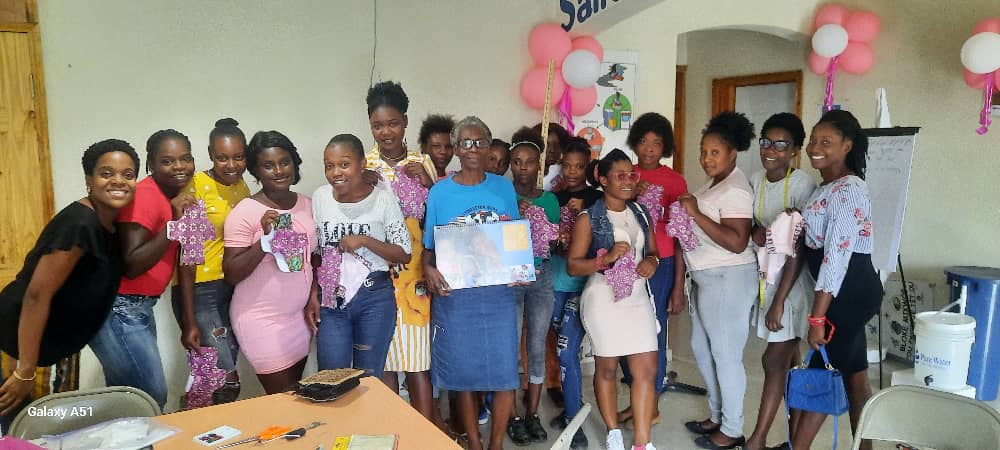
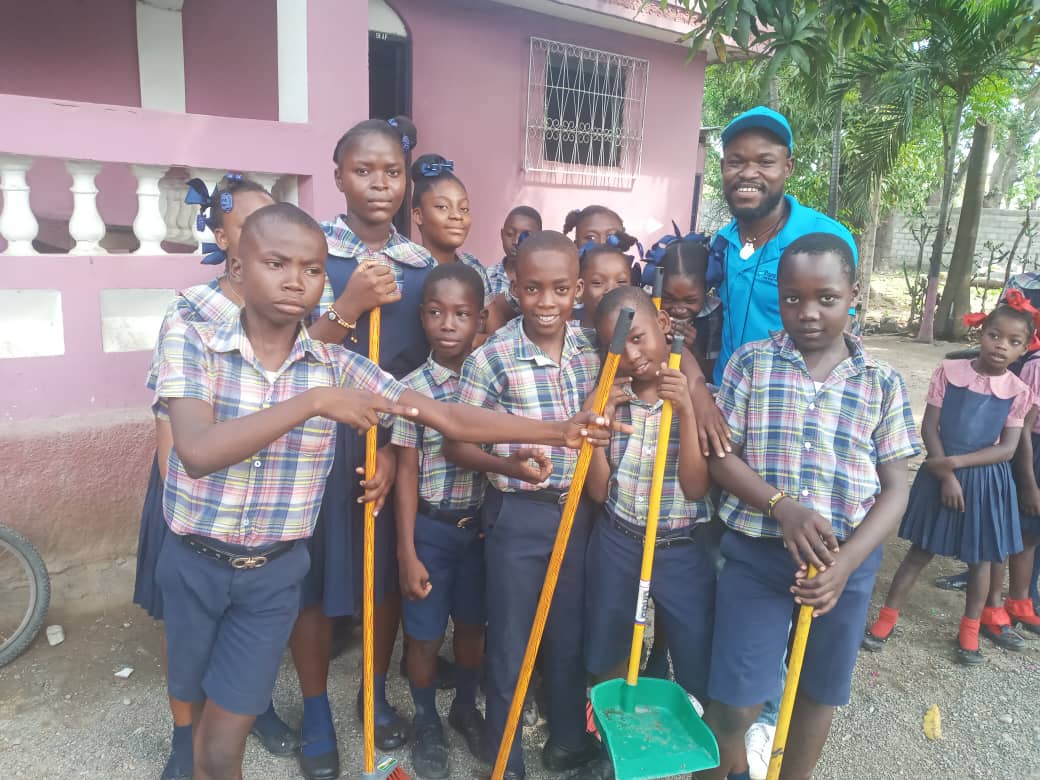
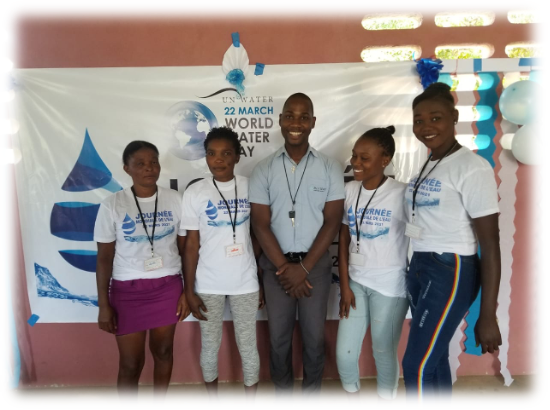



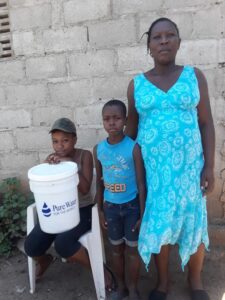
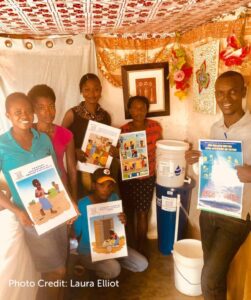 Be a part of the solution.
Be a part of the solution.